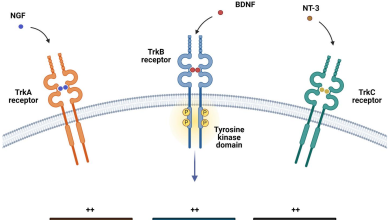When Abdominal Pain Does Not Stop Causes, Symptoms, and Treatment

Table of Contents
ToggleIntroduction: Abdominal pain is a common complaint that can stem from various causes, ranging from mild indigestion to severe medical conditions. While occasional discomfort is often manageable and transient, persistent abdominal pain that refuses to subside warrants immediate attention and thorough evaluation.
Understanding Abdominal Pain:
Before delving into the reasons why abdominal pain may persist, it’s crucial to understand the diverse spectrum of sensations that individuals may experience. Abdominal pain can manifest as cramping, sharp stabbing sensations, dull aches, or generalized discomfort. Its intensity may vary from mild to excruciating, and it can occur in any region of the abdomen, including the upper, lower, or central areas. In this comprehensive guide, we delve into the potential causes, symptoms, and treatment options when abdominal pain does not stop.
Common Causes of Persistent Abdominal Pain:
- Gastrointestinal Issues: Conditions such as gastritis, gastroenteritis, peptic ulcers, and inflammatory bowel diseases like Crohn’s disease or ulcerative colitis can trigger persistent abdominal pain.
- Gallbladder Disorders: Gallstones or inflammation of the gallbladder (cholecystitis) often lead to intense and unrelenting pain in the upper abdomen, particularly after meals.
- Pancreatitis: Inflammation of the pancreas can result in severe, persistent abdominal pain, often radiating to the back, accompanied by nausea, vomiting, and fever.
- Appendicitis: A common surgical emergency, appendicitis manifests with persistent pain that typically begins around the navel before migrating to the lower right abdomen. It’s often accompanied by fever and nausea.
- Kidney Stones: The passage of kidney stones through the urinary tract can cause excruciating and relentless pain in the lower back and abdomen, often radiating to the groin.
- Pelvic Inflammatory Disease (PID): Commonly affecting sexually active women, PID causes persistent pelvic pain, accompanied by vaginal discharge, fever, and irregular menstrual bleeding.
Symptoms to Watch For:
When abdominal pain does not stop, it’s essential to pay attention to accompanying symptoms that may indicate a serious underlying condition. These include:
- Persistent vomiting
- High fever
- Inability to pass gas or have a bowel movement
- Blood in vomit or stool
- Severe tenderness or swelling of the abdomen
- Rapid heartbeat
- Fainting or dizziness
Seeking Medical Attention:
Given the broad range of potential causes and the seriousness of some conditions, it’s imperative to seek prompt medical evaluation if abdominal pain persists. A healthcare professional will conduct a thorough history and physical examination, possibly supplemented by diagnostic tests such as blood tests, imaging studies (ultrasound, CT scan), or endoscopic procedures to identify the underlying cause accurately.
Treatment Approaches:
Treatment for persistent abdominal pain varies depending on the underlying cause. Some common interventions include:
- Medications: Pain relievers, antacids, antibiotics, or anti-inflammatory drugs may be prescribed based on the specific diagnosis.
- Dietary Modifications: Avoiding trigger foods or adopting a bland diet can alleviate symptoms associated with gastrointestinal conditions.
- Surgery: Conditions like appendicitis, gallstones, or bowel obstructions often require surgical intervention to resolve the underlying issue.
- Lifestyle Changes: Quitting smoking, reducing alcohol consumption, and maintaining a healthy weight can mitigate the risk of certain gastrointestinal disorders.
- Alternative Therapies: Techniques such as acupuncture, yoga, or relaxation exercises may complement conventional treatment and help manage chronic abdominal pain.
Conclusion:
Persistent abdominal pain is a distressing symptom that demands careful evaluation and management to ensure timely diagnosis and appropriate treatment. By understanding the potential causes, recognizing concerning symptoms, and seeking prompt medical attention, individuals can take proactive steps towards alleviating discomfort and promoting optimal gastrointestinal health. Remember, when abdominal pain does not stop, prioritizing your well-being and seeking professional medical guidance is paramount for achieving a swift and effective resolution








